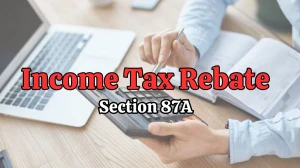
IRS Payment Plan Online, What is an IRS Payment Plan?
To apply for an IRS payment plan online, use the IRS' Online Payment Agreement tool, accessible with the same login credentials as your IRS account or through an ID.me account for identity verification.
Updated Nov 16, 2023
On This Page
What is an IRS Payment Plan?
An IRS payment plan is a structured arrangement that allows individuals with an outstanding tax debt to gradually pay off what they owe over time. There are various IRS payment plans available, and individuals can initiate them independently, either online, by phone, or in person.
While interest and penalties continue to accrue during the repayment period, the overall fees may be lower than those associated with alternative methods, such as using high-interest credit cards to settle tax debts.
It's crucial not to delay filing your tax return due to a tax bill, as procrastination can lead to additional late-filing fees. Instead, individuals are encouraged to file their returns, make partial payments if possible, and explore IRS payment plans or other available tax debt relief options.
Entering into an IRS payment plan involves a direct agreement with the agency to gradually settle your federal tax obligations. The IRS provides flexibility with short-term and long-term payment plan options.
For a short-term tax payment plan, taxpayers can resolve their tax debt within 90 or 180 days. Alternatively, the long-term installment agreement, designed for individuals needing more time, allows them to pay off their tax liability through monthly installments.
The decision between these plans hinges on the amount owed and the anticipated speed of debt repayment. Consistently adhering to the chosen plan usually prevents the IRS from initiating tax levies or liens.
IRS Payment Plan Online
The IRS offers a solution in the form of payment plans, allowing taxpayers to spread their payments over a designated period. o apply for an IRS payment plan online, follow these steps:
- Log into the IRS' Online Payment Agreement tool using your previously registered online IRS account credentials. If you don't have an account, you'll need to create an ID.me account to confirm your identity.
- Ensure you have the necessary information on hand, including a valid email address, photo identification (driver's license, state ID, passport), your Social Security number or individual tax ID number, access to a smartphone or webcam for identity verification, and access to a phone or email for multi-factor authentication.
- If you face challenges in verifying your information or need assistance, you can visit the ID.me help page for additional support.
How to Eligible for an IRS Payment Plan?
In case the Online Payment Agreement tool determines ineligibility, the IRS suggests that you can still apply for a tax installment plan by submitting Form 9465 or calling the IRS main hotline to apply by phone. To be eligible for an IRS payment plan, you can apply online using the IRS' Online Payment Agreement tool if you meet specific criteria:
- Short-term payment plan: If you owe less than $100,000 in combined tax, penalties, and interest, have filed all your tax returns, and can complete the payment within either 90 or 180 days.
- Long-term payment plan: If you owe $50,000 or less in combined tax, penalties, and interest, have filed all your tax returns, and may need more than 180 days to settle your tax bill.
Explore the world of Taxes and more on MarketsHost. Get expert advice and insights to make informed decisions.
What is the Minimum Payments for IRS Installment Plans?
For long-term IRS installment plans, you generally have the flexibility to choose your monthly payment amount, provided that it can pay off your debt within 72 months. The IRS allows you to decide on the payment amount based on what you can afford.
The Online Payment Agreement tool from the IRS facilitates adjustments to your monthly payment, due date changes, enrollment in automatic withdrawals, and reinstatement of a payment plan if you've fallen behind.
However, it's crucial to ensure that your chosen monthly payment aligns with IRS requirements. If the newly proposed amount doesn't meet these requirements, adjustments may be necessary. In cases where the monthly payment is unaffordable, completing Form 9465 and Form 433-F (collection information statement) might be necessary.
What are the Fees for an IRS Payment Plan?
The fees for an IRS payment plan vary based on the type of plan and payment method. For a short-term plan (180 days or less), the online application is free, but applying by other methods incurs setup fees ranging from $0 to $107. A long-term plan (more than 180 days) has setup fees of $31 to $225, with potential waivers for low-income taxpayers.
Debit or credit card payments may have additional processing fees, and automatic withdrawals are required for amounts over $25,000. Low-income taxpayers can qualify for fee reductions or waivers depending on their financial situation.
Can You Apply for an IRS Payment Plan by Your Own?
Yes, you can apply for an IRS payment plan yourself, and you are not required to pay a third party for assistance. It's important to be cautious when considering tax-relief companies, as some may not provide the promised services and could leave you in a worse financial situation. The Federal Trade Commission advises against falling for schemes that claim to settle tax debts and emphasizes the potential risks associated with such companies.
IRS Payment Plan Online - FAQs
1. Can I apply for an IRS payment plan online?
Yes, you can apply for an IRS payment plan online using the IRS' Online Payment Agreement tool.
2. What are the eligibility criteria for an online payment plan?
Eligibility criteria vary for short-term and long-term plans, but generally include factors like the amount owed and filed tax returns.
3. Are there fees associated with the IRS payment plan?
Yes, fees depend on the type of plan and payment method, but low-income taxpayers may qualify for fee waivers or reimbursements.
4. Can I change the monthly payment amount in my IRS payment plan?
Yes, the IRS' Online Payment Agreement tool allows you to change your monthly payment amount, among other features.
5. Is it advisable to use third-party companies for IRS payment plans?
The FTC warns against using third-party companies, as they may not deliver promised services and could lead to additional financial issues.




